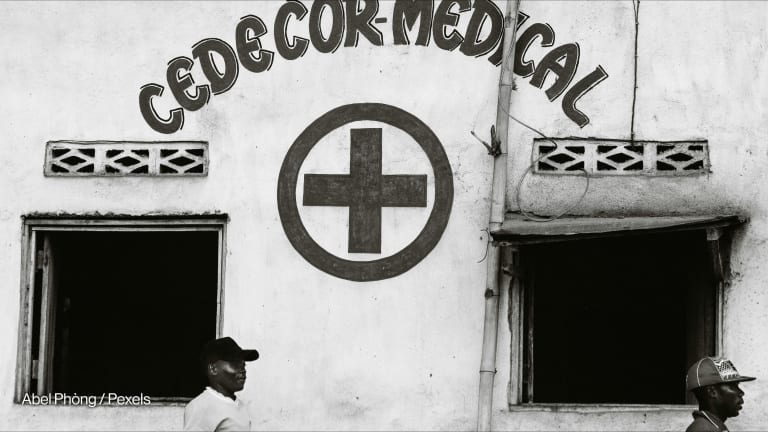
Many in the WASH sector are excited by The Lancet’s launch of a new Commission on WASH and health. But turning research into action at national levels continues to pose a challenge.
The commission — made up of 21 researchers from different disciplines — aims to “reimagine and reconstitute WASH” as a central pillar of public health, gender equality, and social and environmental justice. Its three priorities are assessing the health, social, and environmental consequences of slow progress toward universal access to WASH; examining the financial costs of achieving it; and making recommendations for reform that focus on establishing national systems capable of WASH delivery and responding to challenges.
“It’s a great recognition of the problem, and it’s essentially tackling head-on the evidence that we’ve gathered so far about the health impacts from investments in WASH and the gaps that still exist,” said Geoff Revell, CEO at HappyTap, a social enterprise.
But there are concerns around the potential challenges in getting policymakers to act on the research the commission will provide.
According to the Joint Monitoring Programme report, progress needs to quadruple if the billions of people currently lacking clean water and sanitation worldwide are to have access by 2030.
The failure to deliver on the promise of Sustainable Development Goal 6 on clean water and sanitation thus far was one of the driving factors behind the commission, according to Oliver Cumming, director of the environmental health group at the London School of Hygiene and Tropical Medicine and one of the commissioners.
“We are not going to deliver if we continue as we are doing,” he said.
For Alison Baker, fund manager at Water for Women, recognizing the benefits of improving WASH in public health, gender equality, and social and environmental justice could help motivate governments, institutions, and communities to work collaboratively to deliver.
But Revell said he remains skeptical as to whether governments need more evidence that WASH is important. Many are already convinced, he said, and if they’re not, adding the dimensions of public health, gender equality, and social and environmental justice might not be enough of a catalyst for action.
“The importance of WASH has been clear since the 19th century,” Anthony McDonnell, senior policy analyst at the Center for Global Development, told Devex in an email. “However, since the advent of antibiotics, it has not received the attention from policy makers that it deserves, potentially because they don’t want to talk about excrement.”
Less than 15% of countries report having the financial and human resources they need to implement WASH plans.
When it comes to WASH and gender, Aidan Cronin, senior adviser for WASH at UNICEF, explained the challenge in translating the issue into policies and programming.
“The UN-Water SDG 6 progress update 2021 shows that fewer than 50 countries have laws or policies that specifically mention women’s participation for rural sanitation or water resources management,” he said.
What drives political leaders' decision making is an open-ended question, Revell said.
But Cumming believes the commission could help to make progress by driving “a level of coherence and dialogue across the scientific community” and providing analysis and evidence-based recommendations to support policy and practice.
“We as a group are very cognizant of the importance of listening to the policy and practice sector and our questions, analysis, and recommendations will be rooted in that,” he said, adding that the group will be looking “creatively” at how they can engage with policy and practice actors.
So far, according to The Lancet, there’s been too much focus on “narrow, low-cost household interventions,” which have distracted from building national systems that are able to provide universal access to WASH services.
Low-cost solutions include the promotion of handwashing with soap, hygiene counseling, and installation of deeper pit latrines.
Critical reflection on WASH programming and understanding what can be done better is essential, Baker said.
But Revell said he’d be hesitant to write off low-cost solutions because of a lack of solid evidence to show that higher-cost approaches generate better results.
While the commission is highlighting evidence that some low-cost interventions fail to deliver, Cumming said “cost and efficiency are key in low-resource settings, so achieving this at the lowest cost possible is of course critical.”
The commission’s research will be funded by the United Kingdom’s Foreign, Commonwealth & Development Office and the Bill & Melinda Gates Foundation.
Visit the WASH Works series for more coverage on water, sanitation, and hygiene — and importantly, how WASH efforts intersect with other development challenges. You can join the conversation using the hashtag #WASHWorks.
Update, Sept. 13, 2021: This article has been updated to reflect that Oliver Cumming is director of the environmental health group at the London School of Hygiene and Tropical Medicine and one of the commissioners.









